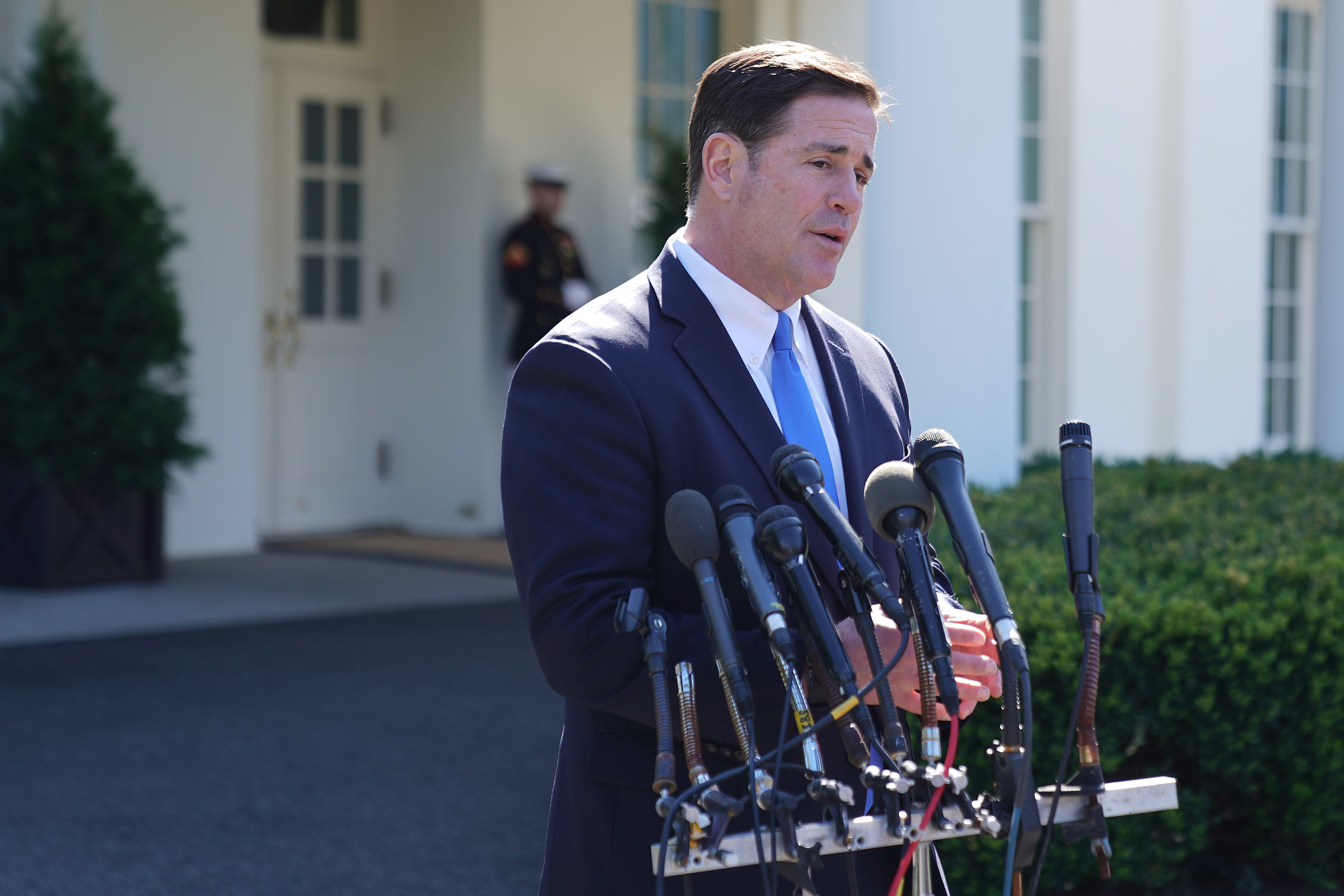
Some states are paying one-time bonuses up to $2,000 to unemployed workers who accept a job.
It's part of a broader strategy to address a perceived labor shortage, though some economists are skeptical the approach will pull all out-of-work residents off the sidelines.
At least 22 Republican-led states recently announced their intent to pull out of federal unemployment programs.
The withdrawal will end or reduce unemployment benefits for 3.6 million people — about a quarter of all Americans collecting such aid, according to Andrew Stettner, a senior fellow at the Century Foundation.
More from Personal Finance:
How to get the monthly child tax credit without a permanent address
Biden administration says it can raise $700 billion by targeting tax cheats
Treasury gives out $6 billion to assist landlords and renters
Affected workers will lose a $300 weekly supplement to benefits as soon as June 12. (They'll still get their typical state allotment of aid, which generally replaces half a lost paycheck.) The self-employed and long-term unemployed in most states will fully lose benefits.
Return-to-work bonus
The states are withdrawing two or more months before their scheduled end date on Sept. 6. Officials claim the extra benefits are causing workers to stay on the sidelines, making it harder for businesses to hire.
Four of the states — Arizona, Montana, New Hampshire and Oklahoma — are paying return-to-work bonuses in lieu of the enhanced unemployment benefits to encourage residents to accept jobs.
"In Arizona, we're going to use federal money to encourage people to work instead of paying people not to work," Gov. Doug Ducey said last week.
The state's Back to Work program offers one-time $1,000 payments to unemployment recipients who accept a part-time job and $2,000 to full-timers.
New Hampshire, via its Summer Stipend Program, is paying $500 and $1,000 bonuses for part- and full-time positions, respectively. Montana and Oklahoma are paying $1,200 to those who accept full-time work.
A 'gamble'?
However, some economists don't think unemployment benefits are playing a big role in hiring challenges.
"I think it's a gamble for states to assume expanded unemployment insurance is the sole reason why they're having trouble hiring," said AnnElizabeth Konkel, an economist at job site Indeed.
"I think it factors in some way, but it's impossible to quantify how much and I don't think it's the sole reason," she added.
Instead, many economists believe the ongoing pandemic is likely the driving force.
Covid is what started this entire mess, so you can't discount it until we get 100% back to normal.AnnElizabeth Konkeleconomist at Indeed
Covid infections are falling but remain elevated. The seven-day average of new infections was about 29,100 as of Thursday, according to data compiled by Johns Hopkins University.
Just 48% of adults are fully vaccinated, according to the Centers for Disease Control and Prevention. Those who haven't completed the full vaccine regimen may be hesitant to return to work given the continued health risk.
"Covid is what started this entire mess, so you can't discount it until we get 100% back to normal," Konkel said.
And there are other pandemic-related factors, like child care if schools aren't fully reopened or daycare centers remain closed. There's also generally a lag between labor demand (job openings) and supply (available workers).
A single mother with child-care challenges or someone afraid or at risk of the coronavirus may be hesitant to return to work, even with a bonus available, Konkel said. But such a bonus may be impactful for the unemployed if money is a primary motivator, she added.
Caveats
There are also caveats associated with the return-to-work bonuses that limit their availability.
For example, workers in New Hampshire and Arizona are only eligible if their new jobs pays less than $25 per hour (equivalent to a $52,000 annual salary). Workers must complete four to 10 consecutive weeks of work to qualify, depending on the state. Those in Montana and Oklahoma also may only be able to find part- instead of full-time jobs, which would likely disqualify them from a bonus.
Workers must also apply for the bonus. The money is available on a first-come, first-serve basis due to finite funding. In Oklahoma, for example, it's available to the first 20,000 qualifying residents.
"pay" - Google News
May 21, 2021 at 11:24PM
https://ift.tt/3hK51fy
Some states will pay you up to $2,000 to return to work. Here’s what to know - CNBC
"pay" - Google News
https://ift.tt/301s6zB
Bagikan Berita Ini














0 Response to "Some states will pay you up to $2,000 to return to work. Here’s what to know - CNBC"
Post a Comment